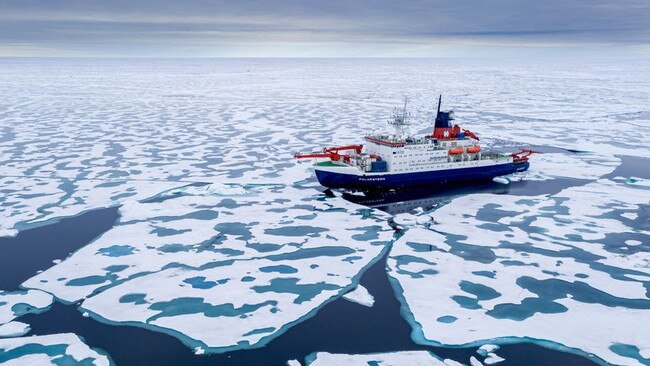Russia’s war on Ukraine upends Arctic climate research
Scientific collaborations in the region slow as Western scientists and institutions halt projects with Russian counterparts.

Russia’s invasion of Ukraine has delayed or derailed international collaborations studying climate change in the Arctic, with many Western scientists and scientific organisations cutting ties with Russian research institutions and cancelling planned meetings or expeditions in Russia or Russian waters.
International tensions over the conflict could cripple research focused on a region that – along with the Antarctic – helps regulate climate around the globe, scientists say. Russia is one of eight countries that control land and ocean territories in the region north of the Arctic Circle.
“The Russian territorial waters and Russian coastline comprise a huge part of the region. We really need to know the full Arctic,” said Matthew Shupe, a University of Colorado Boulder atmospheric scientist. “If we’re limiting access to those regions, we’re going to miss out on some key knowledge to better understand how and why the Arctic system is changing.”
The US National Oceanic and Atmospheric Administration, which conducts ecological and weather monitoring in the Arctic, says war-related tensions haven’t affected its activities there. “All NOAA projects and observations are proceeding in the Arctic,” an agency spokesman said.
That isn’t the case with other key players in Arctic research.
Dr Shupe is a co-leader of an international Arctic research initiative to study climate change known as MOSAiC, for the Multidisciplinary Drifting Observatory for the Study of Arctic Climate. As part of the project, scientists aboard the German research ship Polarstern recently spent a year collecting data in the region.
Fieldwork for the expedition, which ended in October 2020, involved hundreds of crew, support staff and scientists, including up to 10 researchers from Russia, Dr Shupe said.
But now Russian scientists weren’t expected at an April meeting when MOSAiC researchers would discuss the expedition’s data, said Markus Rex, MOSAiC expedition leader and head of atmospheric physics at the Alfred Wegener Institute, the German organisation that led the project. It wasn’t known whether the scientists will attend online, he said.
“We’re looking at this big pile of data, and they bring a lot of expertise to the table,” Dr Shupe said of his Russian collaborators.
Local organisers barred Russian scientists from the Arctic Science Summit Week, an Arctic-research meeting this week and next in Tromso, Norway, hosted by the International Arctic Science Committee. The group is a co-ordinator of international research in the Arctic and includes scientists from 23 countries.
“In Arctic research, our ability to understand these rapid changes that are unfolding is like putting parts of the puzzle together – and without Russia you’re missing a big part of that picture,” said Matthew Druckenmiller, the US delegate to the IASC council and a geophysicist at the National Snow and Ice Data Centre at the University of Colorado Boulder.
The organisers acknowledged that barring researchers from Russian institutions and organisations would complicate research efforts. Monitoring in Russian territories was essential to understanding Arctic climate and the global consequences of changes in the region, conference organisers Jørgen Berge and Geir Gotaas said in an email
The Wall Street Journal


